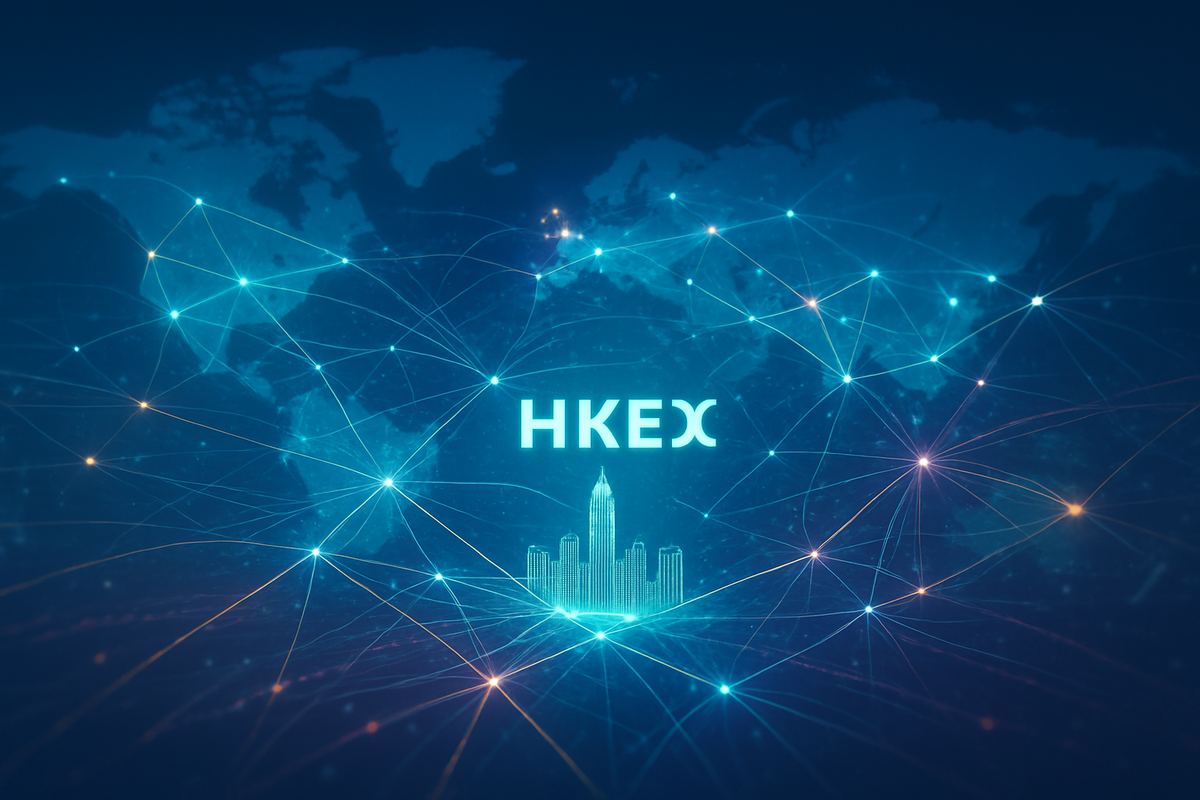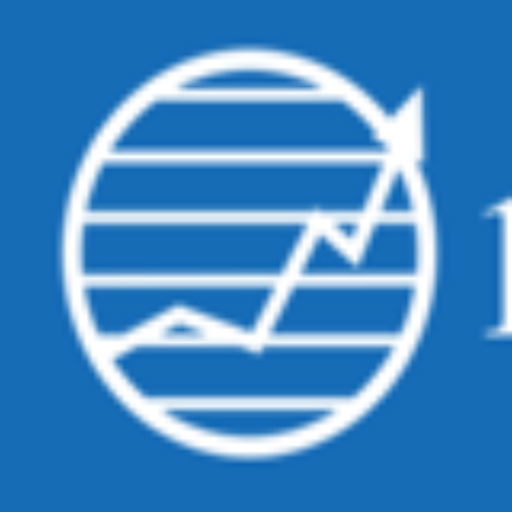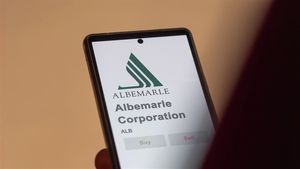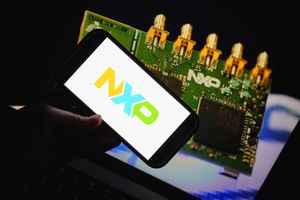
In a significant strategic pivot, Bonnie Chan, the Chief Executive Officer of Hong Kong Exchanges and Clearing Limited (HKEX), has unveiled a compelling vision for the future of global stock exchanges, advocating for a paradigm of collaboration over traditional competition. Articulated primarily in her October 14, 2024, CEO blog post titled "Faster, Higher, Stronger – Together," Chan's message signals a profound shift in how financial market infrastructures might operate and interact in an increasingly complex and technologically driven world. This collaborative ethos aims to bolster market vibrancy, resilience, and efficiency, setting a new direction for the HKEX (HKG: 0388) and potentially reshaping the landscape of international finance.
This strategic redirection comes at a critical juncture for global financial markets, which are grappling with rapid technological advancements, the emergence of new non-traditional competitors like "big techs" and "digital natives," and an ever-present need for enhanced speed and efficiency in trading and settlement. Chan's call for collective strength suggests that traditional exchanges must evolve beyond siloed rivalries, embracing partnerships to navigate these challenges, maintain relevance, and collectively drive progress. The immediate implications point towards an intensified focus on cross-border connectivity, shared technological innovation, and a more unified approach to market development worldwide.
A New Era of Interconnected Markets: HKEX's Collaborative Blueprint
Bonnie Chan, who took the helm as HKEX CEO on March 1, 2024, has swiftly moved to define a forward-looking strategy that redefines the role of a stock exchange in the 21st century. Her "Faster, Higher, Stronger – Together" mantra is not merely a slogan but a blueprint for operational and strategic transformation. The core of her argument posits that achieving greater market speed, higher standards, and stronger foundations necessitates collective action with all stakeholders, from market participants to other global exchanges. This collaborative philosophy is particularly pertinent as exchanges worldwide grapple with the demands for faster trading and quicker settlements, exemplified by the global push towards shorter settlement cycles like T+1, which HKEX is actively preparing for by the end of 2025.
Central to Chan's vision is HKEX's role as a "super connector," leveraging its unique position to bridge China with global capital and opportunities. This involves not only facilitating capital flow but also actively fostering ties with emerging financial hubs. A tangible manifestation of this strategy is the planned opening of an HKEX office in Riyadh in 2025, aimed at strengthening connections between China and the Middle East. Furthermore, the "Connect" franchise, which allows international companies listed in Hong Kong to benefit from southbound trading, exemplifies HKEX's existing collaborative framework, a feature unique among global exchanges. These initiatives underscore a proactive approach to building a network of alliances rather than competing in isolation.
The competitive landscape is no longer limited to traditional exchange operators. Chan explicitly acknowledges the rise of "big techs" and "digital natives" as significant new competitors, whose innovative technologies and agile business models pose a fresh challenge to established financial infrastructures. By advocating for collaboration, HKEX aims to either partner with these new players or work alongside traditional market participants to integrate cutting-edge technology and innovative solutions, ensuring that the exchange remains at the forefront of financial innovation. This includes efforts to develop a next-generation clearing and settlement platform, enhancing overall market efficiency and resilience.
Initial market sentiments, while not yet fully quantified in specific stock movements, indicate a general appreciation for the forward-thinking approach. The emphasis on resilience and orderly markets, especially amidst rising global uncertainties, resonates with investors and regulators alike who seek stability and robust infrastructure. The strategic shift towards collaboration is seen as a pragmatic response to the evolving global financial ecosystem, potentially paving the way for more integrated and efficient global capital markets.
Market Winners and Losers in a Collaborative Future
HKEX CEO Bonnie Chan's collaborative vision is poised to redraw the competitive lines within the global financial market, creating clear beneficiaries and presenting significant challenges for others. This strategic shift, emphasizing partnerships and shared growth, will ripple through major global exchanges, financial technology providers, and investment banks.
Among the clearest winners are exchanges that align with HKEX's "super connector" strategy, particularly those in the Middle East. The Abu Dhabi Securities Exchange (ADX) and the Dubai Financial Market (DFM) stand to gain significantly. HKEX (HKG: 0388) has already signed a Memorandum of Understanding (MOU) with ADX (ADX: ADX) to explore cooperation in areas like ETFs, ESG products, and cross-listings, with plans to open a representative office in Saudi Arabia. This collaboration could lead to shared technological infrastructure, harmonized listing standards, and enhanced attractiveness for companies seeking dual listings or access to Asian capital, boosting trading volumes and elevating their global profiles. Similarly, the Shanghai Stock Exchange (SSE) (SSE: 600000) and Shenzhen Stock Exchange (SZSE) (SZSE: 399001), while technically competitors for some listings, will benefit from the continued expansion and deepening of the Stock Connect programs. These programs, which facilitate two-way capital flows between mainland China and international markets via Hong Kong, are central to Chan's vision, broadening the investor base for Chinese companies and offering diversified investment opportunities for global investors. The London Stock Exchange Group (LSEG) (LSE: LSEG), as the parent company of the London Metal Exchange (LME), also stands to benefit from HKEX's closer alignment with its subsidiary, which has already led to expanded LME warehouses in Hong Kong and governance reforms, potentially enhancing market trust and efficiency in industrial metals trading.
Conversely, established exchanges like the New York Stock Exchange (NYSE) (NYSE: ICE) and Nasdaq (NASDAQ: NDAQ) could face increased pressure. HKEX's efforts to enhance its appeal as an IPO hub, particularly for Chinese and Middle Eastern companies seeking international capital, may divert listings that might traditionally have sought U.S. venues. This could result in a potential shift in market share for certain high-profile Asian and Middle Eastern IPOs. Similarly, Euronext (EURONEXT: ENX) and Japan Exchange Group (JPX) (TYO: 8697) might experience indirect pressure. If HKEX's enhanced liquidity and investor access, fueled by its collaborative corridors, draw significant capital and listing interest, other developed markets without equally deep, specialized partnerships could see a relative shift in market attention, prompting a re-evaluation of their internationalization strategies.
The financial technology sector is also poised for significant shifts. Providers of cutting-edge exchange technology, including solutions for trading, clearing, and settlement systems, are clear winners. HKEX's substantial investment in transforming its technology, including a next-generation clearing and settlement platform to facilitate T+1 settlement by the end of 2025, creates immense opportunities for fintech companies specializing in high-speed, robust, and efficient market infrastructure. This also extends to providers of AI-driven market surveillance and blockchain applications. Conversely, legacy technology providers that are slow to adapt to these new demands or cannot offer interoperable solutions may find themselves at a disadvantage, risking obsolescence and loss of market share to more agile competitors.
Global investment banks with strong Asia-Pacific and Middle East presences, such as JPMorgan Chase (NYSE: JPM), Goldman Sachs (NYSE: GS), Morgan Stanley (NYSE: MS), and HSBC (LSE: HSBA), are well-positioned to capitalize on increased cross-border listings and capital flows. Their extensive global networks and expertise in IPO underwriting, M&A advisory, and trading will be crucial for companies navigating these new collaborative corridors, leading to increased deal flow and strengthened positions in these lucrative markets. Investment banks with strong ESG advisory capabilities will also benefit, given HKEX's focus on developing ESG products in its collaborations. However, investment banks with limited international reach, particularly in Asia and the Middle East, or those heavily reliant on traditional market structures, may struggle to compete. They risk missing out on lucrative international mandates and facing operational inefficiencies if unable to adapt to new market standards and technological advancements.
A Blueprint for Global Financial Integration and Innovation
Bonnie Chan's collaborative vision for HKEX (HKG: 0388) extends far beyond a mere strategic adjustment; it represents a profound blueprint for the future evolution of global financial markets, deeply integrated with broader industry trends and poised to generate significant ripple effects. This strategy, underpinned by HKEX's role as a "superconnector," positions Hong Kong as a pivotal gateway between China and the world, and increasingly, between Asia and the Middle East.
This collaborative stance is inextricably linked to the ongoing trend of globalization. With China's capital markets projected to exceed US$100 trillion by 2030, HKEX's focus on facilitating two-way capital flows is a crucial enabler of this growth. Initiatives like the upcoming Riyadh office in 2025 and MOUs with Saudi exchanges are not just about market expansion but about weaving a more interconnected global financial tapestry. This strategic outreach aims to attract more international firms, investors, and specialized technology companies to Hong Kong's listing platforms, thereby strengthening its position as a truly global financial hub. The success of cross-listing initiatives, including those with Brazil and Saudi Arabia for ETFs, further illustrates HKEX's commitment to facilitating cross-border investment and capital mobility.
Technological advancements form another cornerstone of this vision. HKEX is actively embracing innovations such as Artificial Intelligence (AI) and blockchain to enhance risk management, market robustness, and competitive advantage. AI applications are already being used to analyze vast datasets for identifying counter-party risks and unusual market events, with further exploration into AI integration into trading platforms. The modernization of structured product listing frameworks through technological solutions underscores a commitment to efficiency and innovation. Furthermore, the rise of digital assets is being directly addressed, with Chan viewing virtual assets as a significant area for investor diversification. HKEX's launch of a Virtual Asset Index Series, providing transparent pricing for cryptocurrencies like Bitcoin and Ether, aligns with the Hong Kong Securities and Futures Commission's (SFC) efforts to regulate digital asset exchanges. This strategic move aims to establish Hong Kong as a leading crypto and Web3 hub in Asia, bridging traditional finance with nascent blockchain ecosystems and setting new benchmarks for dependability and transparency.
The ripple effects of this strategy are significant. For competitors, HKEX's proactive international expansion, especially into the Middle East, and its focus on attracting "new economy" and tech listings, will intensify the race for IPOs and capital. Other global exchanges will likely face pressure to accelerate their own digital transformation, diversify product offerings, and strengthen international partnerships to maintain market share. For partners, including other exchanges, market participants, and regulatory bodies, HKEX's "superconnector" strategy strengthens relationships. The optimization of the Stock Connect mechanism and cross-border ETF connectivity with the Shanghai (SSE: 600000) and Shenzhen (SZSE: 399001) Stock Exchanges exemplifies this, fostering expanded product ecosystems, greater liquidity, and new investment opportunities across borders. Collaboration with the Hong Kong Monetary Authority (HKMA) on developing an International Central Securities Depository (ICSD) platform further aims to enhance clearing and settlement efficiency, potentially serving as a model for regional cooperation.
From a regulatory and policy perspective, Chan's vision directly influences the landscape. HKEX's close coordination with the SFC on digital asset initiatives points towards a more structured and secure environment for virtual asset trading. Efforts to simplify and streamline the listing process, including new rules like Chapter 18C to attract specialist technology companies, reflect an adaptive regulatory approach. Moreover, HKEX's commitment to integrating Environmental, Social, and Governance (ESG) considerations, mandating annual ESG reports for listed companies, and aligning with international standards, demonstrates a dedication to sustainable finance that will likely drive further regulatory developments. Historically, financial markets have always adapted to new technologies, industry shifts, and globalization, often through consolidation or strategic partnerships—from the telegraph's impact on national markets to the formation of multi-exchange entities like Euronext. HKEX's current strategy mirrors these historical patterns of adaptation and expansion, positioning it to lead in shaping the future of interconnected and technologically advanced financial markets.
The Road Ahead: Navigating a New Collaborative Frontier
The collaborative vision championed by HKEX (HKG: 0388) CEO Bonnie Chan sets a dynamic trajectory for the exchange and, by extension, for global financial markets. The coming months and years will see HKEX actively implementing its "superconnector" strategy, with a strong focus on energizing IPO activity, expanding its international footprint, diversifying product offerings, and leveraging technological advancements.
In the short-term (2025-2026), HKEX is poised to build on its recent momentum. Hong Kong has already reclaimed its status as a premier IPO hub, leading global rankings in the first nine months of 2025 with 66 companies raising US$23.27 billion. This strong performance, fueled by a pipeline of over 300 "new economy" companies, is expected to continue. We anticipate sustained "southbound" flows, as mainland Chinese investors continue to diversify into Hong Kong assets through the Stock Connect programs. The efficacy of HKEX's international outreach will be tested with initial listings from the Middle East and ASEAN regions following the opening of the Riyadh office in 2025. Furthermore, enhanced trading tools, such as the weekly expiries for stock options introduced in November 2024, and the planned launch of Hang Seng Biotech Index Futures in November 2025, will aim to increase liquidity and cater to specific market demands. HKEX is also maintaining a cautious, regulation-first approach to digital assets, signaling a measured integration of novel asset classes.
Looking further into the long-term (beyond 2026), HKEX aims for more fundamental transformations. The exchange envisions evolving beyond merely a "gateway to China" to become a broader "gateway to Asia," connecting a wider array of emerging Asian businesses with global capital. This will involve a more balanced revenue mix, with substantial growth in fixed-income products, commodities trading (potentially leveraging the London Metal Exchange for an "East Wing" clearing capability), and other asset classes like data and carbon credits. The sustained focus on biotech and other new economy sectors could establish Hong Kong as a leading global hub for these innovative industries. Crucially, HKEX will continue to position itself as a key offshore Renminbi (RMB) center, developing RMB products and capabilities to support China's currency internationalization efforts.
Strategic pivots or adaptations will be crucial for all market players. For HKEX, this means accelerated diversification into multi-asset ecosystems, maintaining regulatory agility to balance attractive listing reforms with robust investor protection, and continuous investment in cutting-edge technology and global talent. Other exchanges will need to rapidly innovate and forge their own strategic partnerships to compete effectively. Issuers, particularly from China, the Middle East, and ASEAN, will increasingly consider Hong Kong for dual primary or secondary listings to access diverse investor bases. Global investors will need to re-evaluate asset allocation, potentially increasing exposure to Hong Kong-listed Chinese assets and adapting to HKEX's expanding derivative products. Intermediaries like banks and brokers will need to expand their capabilities to cater to increased cross-border flows, new listing types, and diversified product offerings.
Emerging market opportunities include China's ongoing economic transformation, with leading companies leveraging Hong Kong for global expansion and R&D funding. The booming biotech sector in China presents a significant fundraising and trading opportunity. Additionally, large pools of wealth in the Gulf and Southeast Asia are actively seeking investment opportunities and diversification, making them prime targets for HKEX's collaborative outreach. However, significant challenges persist, including geopolitical and macroeconomic volatility, particularly US-China trade tensions, which could dampen investor sentiment. Regulatory divergence, balancing Hong Kong's international standards with mainland China's unique market characteristics, remains a complex act. Intense competition from other global and regional exchanges, and a potential over-reliance on mainland China dynamics, also pose risks.
Three potential scenarios for HKEX's future emerge:
- "Superconnector Ascendant" (Most Likely): HKEX successfully leverages its strategic position and Chan's vision, attracting a steady stream of "new economy" IPOs and expanding listings from the Middle East/ASEAN. Diversification gains traction, leading to sustained growth in trading volumes and revenue, with Hong Kong effectively mediating capital flows despite geopolitical fluctuations.
- "Diversification Slowdown" (Moderate Risk): While IPO activity remains strong, the expansion into new asset classes faces slower-than-expected adoption or intense competition, making HKEX's revenue growth overly reliant on equities and more vulnerable to market cycles.
- "Geopolitical Headwinds Intensify" (Higher Risk): Escalating global crises significantly reduce cross-border capital flows and investor confidence, severely impacting HKEX's IPO pipeline and trading volumes, necessitating a more profound strategic pivot towards regional Asian capital and reduced reliance on China.
Against a backdrop of robust recent performance, including a 39% year-over-year increase in net profit for the first half of 2025 and a 220% surge in funds raised from new share sales in the first nine months of 2025, HKEX has become the world's third largest by turnover in 2025. The success of Chan's collaborative vision will hinge on its ability to navigate these opportunities and challenges, solidifying its role as a pivotal force in shaping the future of global finance.
A Collaborative Future: Key Takeaways and Investor Outlook
Bonnie Chan's collaborative vision for HKEX (HKG: 0388) marks a pivotal moment in the evolution of global financial markets, signaling a decisive shift from traditional rivalry towards integrated growth. The core takeaway is HKEX's commitment to strengthening its role as a "superconnector," leveraging its unique position between mainland China and the world, and actively building bridges with emerging financial hubs like the Middle East and ASEAN. This strategy is not merely about competition but about enhancing market vibrancy, efficiency, and resilience through technological advancement, strategic diversification, and proactive global engagement.
Moving forward, the market can expect HKEX to continue its aggressive pursuit of "new economy" listings, particularly in sectors like biotech, AI, and electric vehicles, supported by streamlined listing rules. The expansion of the Stock Connect programs and the development of new cross-border products will deepen capital flows, while the push for shorter settlement cycles and advanced technological infrastructure (like the Orion derivative platform) will bolster market efficiency. While geopolitical and macroeconomic uncertainties remain a significant backdrop, the current resurgence in Hong Kong's IPO market and sustained investor interest in Chinese assets suggest a robust path ahead. HKEX's diversification into fixed-income products, commodities, and potentially data, carbon credits, and virtual assets, aims to create a more balanced and resilient ecosystem.
The lasting impact of Chan's vision could be profound, solidifying Hong Kong's long-term stature as a global financial powerhouse. By championing collaboration and innovation, HKEX is not just securing its own future but also setting a precedent for how exchanges worldwide can adapt to a rapidly changing financial landscape. The goal is to make a listing on HKEX a "badge of honor" for quality companies, reinforcing Hong Kong's role as a vital hub that facilitates global capital flows and serves the real economy.
For investors, the coming months warrant close attention to several key areas. Monitor the progress of the extensive IPO pipeline, especially the influx of "new economy" companies, which could present significant growth opportunities. Keep an eye on further policy support from mainland China and ongoing enhancements to HKEX's listing rules and the Stock Connect mechanism, as these will directly influence market accessibility and product offerings. Observe the development of new asset classes, particularly in fixed-income products and the measured integration of virtual assets, which could offer new avenues for portfolio diversification. Finally, remain vigilant about the broader global economic and geopolitical landscape, as these factors will continue to shape market sentiment and investor appetite for risk. By understanding and tracking these developments, investors can better navigate the evolving opportunities within Hong Kong's increasingly collaborative and technologically advanced market.
This content is intended for informational purposes only and is not financial advice







